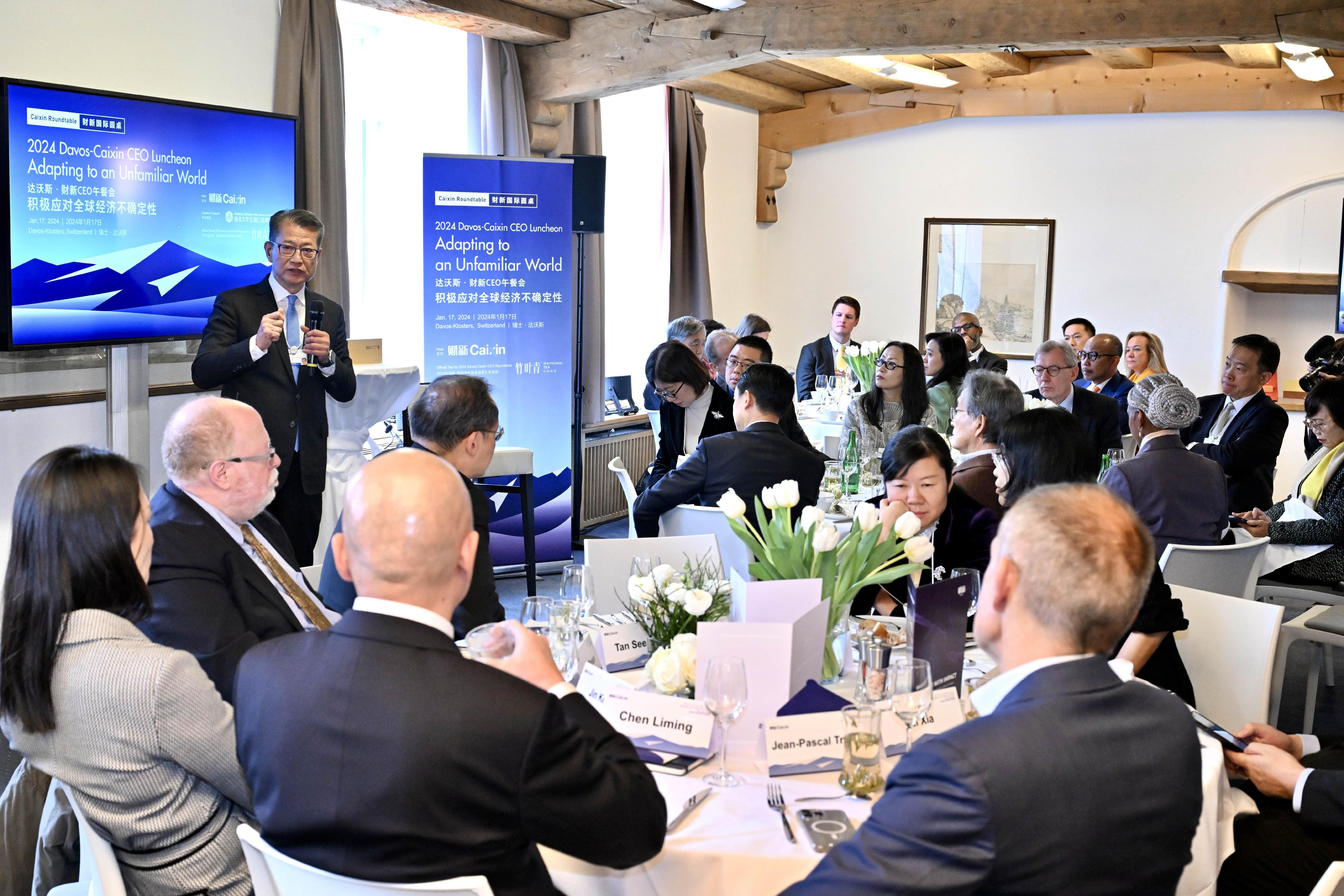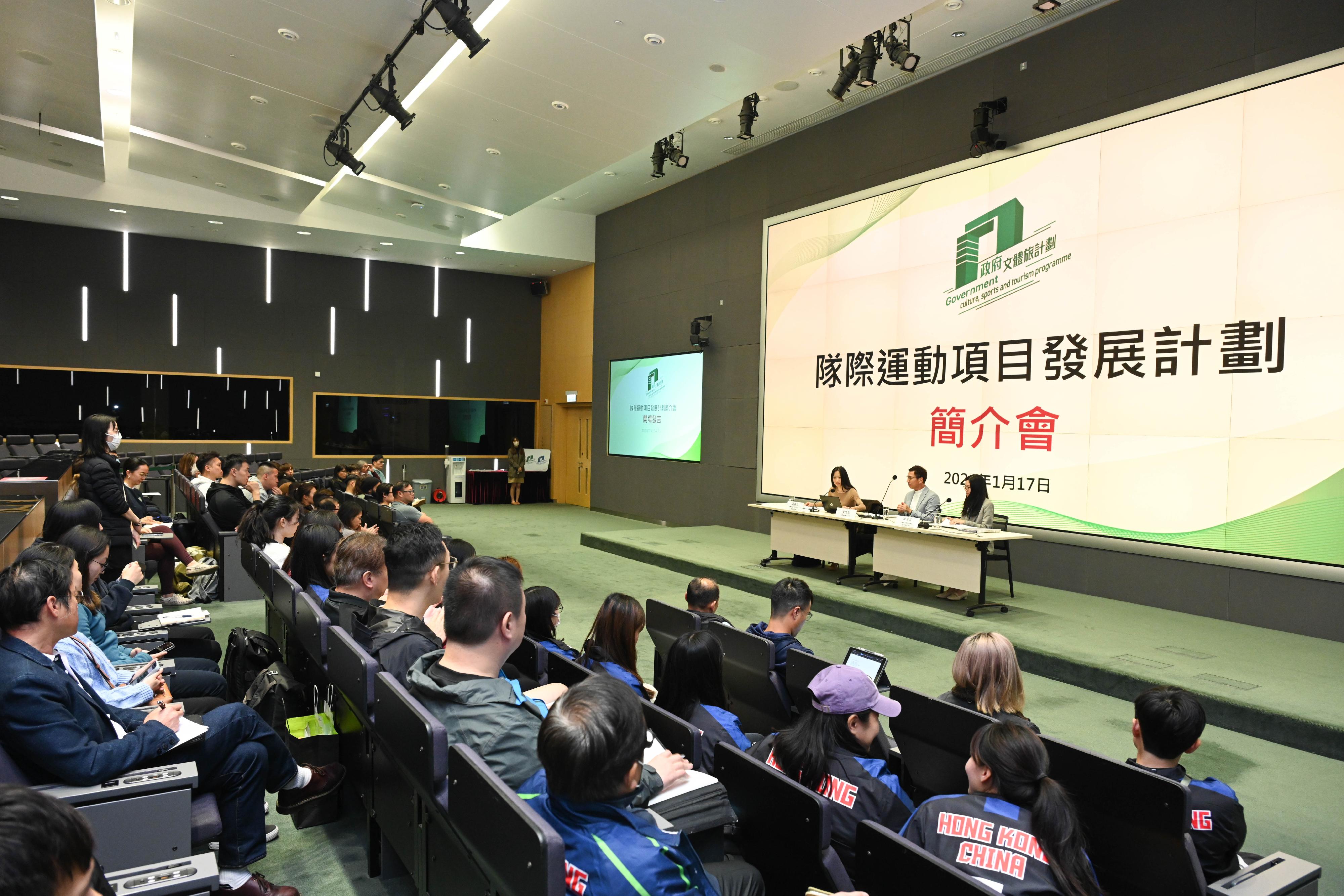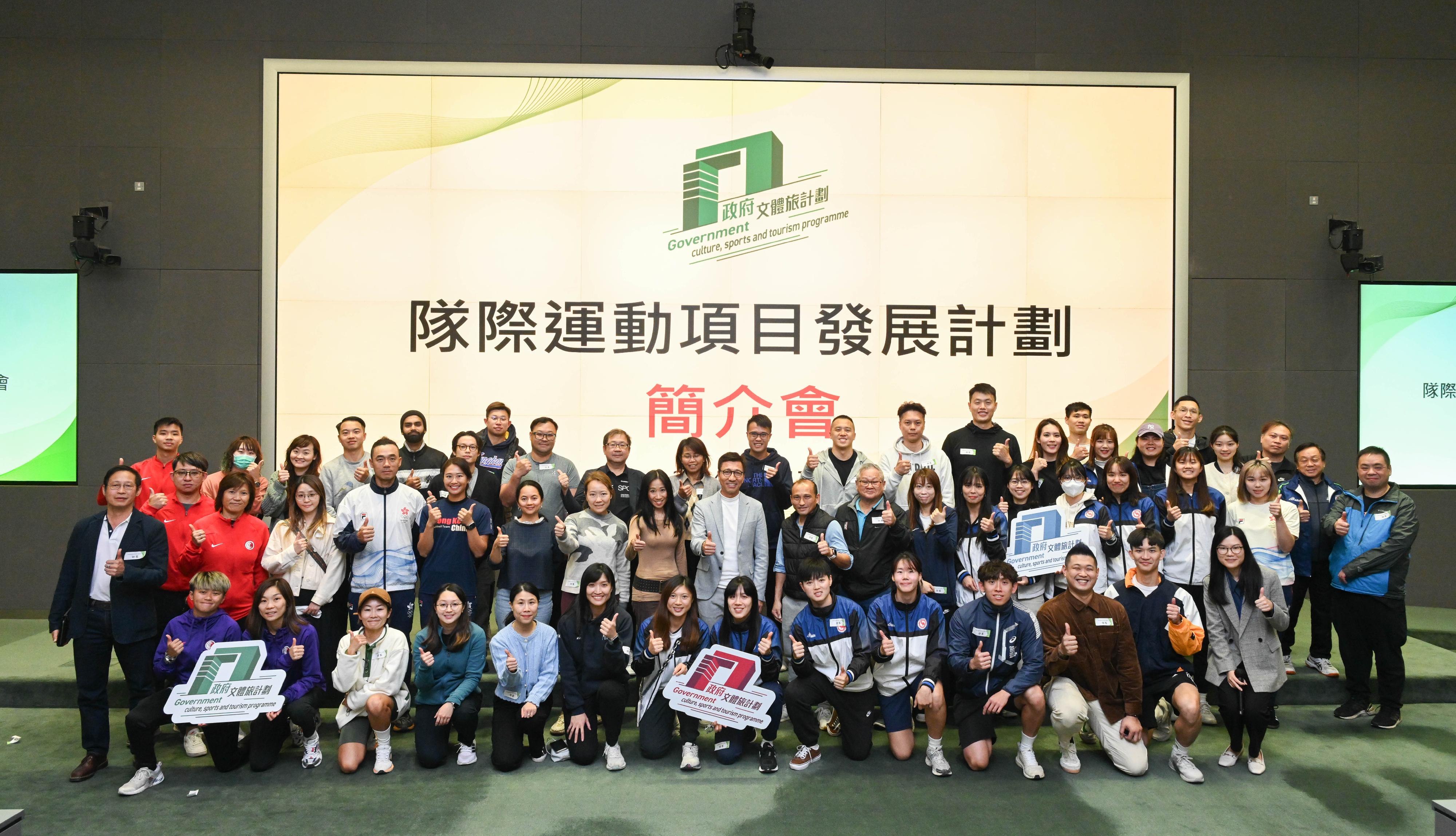Speech by FS at Caixin CEO Luncheon (English only) (with photo)
Following is the speech by the Financial Secretary, Mr Paul Chan, at the Caixin CEO Luncheon yesterday (January 17, Davos time):
Thank you, Shuli (Founder of Caixin, Ms Hu Shuli), distinguished guests, ladies and gentlemen,
First of all, let me thank Caixin for giving me this welcome opportunity to be here to meet with such a group of distinguished leaders. It is a pleasure to stand before you. And I understand that I am standing between you and your main course. So I will try to keep my comments brief.
The topic chosen by Caixin is “Adapting to an Unfamiliar World”. Yes, the world is getting complicated as well as highly complex and fast-changing. The geopolitical tensions between the US (the United States) and China have continued, and they have consequentially impacted on the supply chain, industry chain, and global growth. Also, technology is advancing; the digital economy is bringing tremendous changes to the global landscape in terms of shifting political and economic influence. And not to mention the prospects of green transition. So under all changing landscapes, I think there is one thing which is very certain – what is the best place for putting your investment? That is China, including Hong Kong.
Premier Li Qiang yesterday made a very firm commitment on China’s policy of opening up; continuing to increase wealth; and advocating co-operation in the area of technology and industry chain allocation.
For us in Hong Kong, in these changing circumstances, how do we navigate and lead our economy to the next phase? That is a question that we, as the Government, always has on our mind. In the 14th Five-Year Plan of the country, Hong Kong is given “eight centres” positioning for further development – including international centres on shipping, trade, financial, aviation and innovation and technology; and two regional centres – one is related to legal and dispute resolution services, and the other one is intellectual property trading. Finally, Hong Kong being Hong Kong, it is the East-meets-West international centre for cultural exchange. Of these “eight centres”, it seems to the Government that in terms of driving our economy forward, the major engines will be financial services and innovation and technology. Financial services is an obvious one because we are an international financial centre. I mentioned about that last year. But in the financial world, it is highly competitive. We need to stay ahead of the competition, always.
Today, with us in this room comes the Chairman of HKEX (Hong Kong Exchanges and Clearing Limited), Laura (Mrs Laura Cha) – no stranger to everyone. We would also like to take this opportunity to introduce the CEO designate of the HKEX. Both are wonderful and very capable persons.
On financial services, we see the need to enhance the liquidity and competitiveness of our stock market. That is why we set up a task force to look at it. They have put forward a number of recommendations covering how to lower transaction costs; changes to the trading mechanism; how to attract more international companies coming to Hong Kong to get listed; how to attract more international as well as Mainland capital to our market, and more. We are working very hard to that end. The results will be seen in the coming months.
Being a financial centre, beyond the equities market, we are also striving hard to develop green and sustainable finance. We are leading in Asia, and we advocate the positioning of Hong Kong as a green technology and financial centre, marrying these fields two together to create a complete green industry chain.
Another area is Renminbi (RMB) internationalisation, and that will help develop Hong Kong into a hub of offshore RMB businesses. We are leading in this area. We have about RMB 1 trillion of deposits, and we are handling about slightly over 70 per cent of global trade settlement conducted in RMB. But there is room – much more room for growth. We believe going forward, there will be more transactions to be conducted in RMB. People holding RMB need to put it to investment to get a reasonable return. If they put it into the Mainland market, now, with the exchange control, the mobility is somehow restricted. We are working to strengthen Hong Kong’s role as an RMB business hub, offering more investment and risk management products. Then there will be inflow of money.
Some recent examples – in our stock market, we have allowed 24 major stocks to be traded in both Hong Kong dollar and RMB, we call it the dual-counter. Thus people taking RMB can buy Hong Kong stocks in RMB, and there is no need to convert it into Hong Kong dollar or US dollar. We are working towards including the dual counter in the Southbound Connect. This means people on the Mainland can invest in Hong Kong shares with RMB.
We want to attract companies from new markets, typically Middle East and the ASEAN (Association of Southeast Asian Nations), to come to Hong Kong to get their companies listed. If they list in Hong Kong, and if we are able to include them in the Southbound Connect with the dual counter, they will be able to attract both international and Mainland capital that will provide additional liquidity and support their valuation. That is on the equities market. I can go on, but perhaps I should move to the next topic.
On financial services, it may be worth mentioning our approach to virtual or digital assets. We have set out a policy statement with regard to virtual assets, and we have started to license virtual asset exchanges from June last year. This is financial innovation that we have to embrace, but we are conscious of the associated risks. How to tackle them? That is to put them into a proper regulatory framework, with proper licensing, so that we will be able to enable this sector grow responsibly and sustainably. Meanwhile, we have just launched a consultation paper on stablecoins as a further step forward.
On innovation and technology, my update to you is that we have chosen four areas to focus our energy and resources on, including artificial intelligence and data science; life and health technology; fintech; and finally, new materials and new energy. We cannot wait for our own companies to grow by themselves. We need to jumpstart this development by attracting more companies, particularly those companies of strategic importance, or even those smaller companies which have frontier technologies. We are attracting them to come to Hong Kong. Over the past year, we have successfully formed strategic partnership with some 30 enterprises. They are called “partners” because through settling in Hong Kong – they would also try to bring along their supply chain in the upstream, medium and downstream. So all together these 30 companies will in the few initial years invest over HK$30 billion and create 10 000 jobs, most of them managerial or research or development positions. They will being good quality jobs for our people.
But to develop innovation and technology, we also need to have talent. So we launched a talent scheme since December 2022. For example, people who are graduates of the global top 100 universities, they can come to Hong Kong to work anytime. They do not need to secure a job offer first. There are altogether 185 such universities because there are different lists of university rankings. We have so far got over 220 000 applications for the talent scheme and other revised talent schemes. We have approved more than 130 000 of them. And over 90 000 of these people have already come to Hong Kong. They will someday be my taxpayers. That is the progress on attracting strategic enterprises and talent.
One final point, in order to enable us to do this better, we formed the Hong Kong Investment Corporation Limited, putting aside about HK$60 billion. When we talk to strategic businesses, when we require them to have certain level of commitment with regard to investment and type of technology they will bring to Hong Kong.
So, that is the update from Hong Kong in terms of our economic development in the coming few years. Thank you very much.





